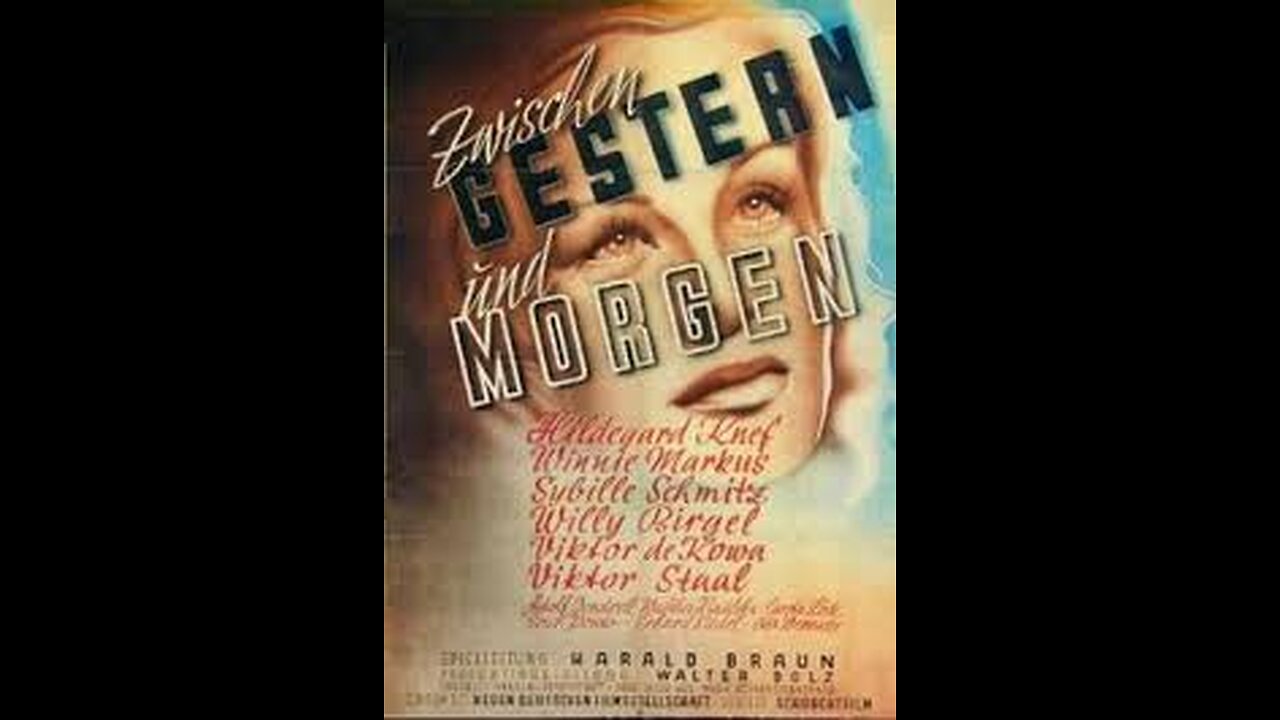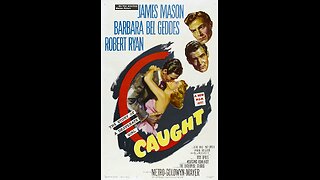Premium Only Content

Between Yesterday and Tomorrow (1947) | Directed by Harald Braun
Between Yesterday and Tomorrow is a post-war German drama set in Munich, exploring the lives of people dealing with the aftermath of World War II. The story takes place in a bombed-out hotel where various survivors gather, each with personal struggles, regrets, and hopes for the future. Through their interactions, the film reflects the deep psychological and social scars left by the war, while offering a portrait of resilience and the search for meaning amid ruins.
Genre: Drama
Director: Harald Braun
Harald Braun (1901–1960) was a German screenwriter and director known for his humanistic storytelling and focus on moral and existential themes. After working as a journalist and playwright, he moved into filmmaking in the 1930s. Braun gained recognition in post-war German cinema for films that dealt with reconciliation, guilt, and renewal, helping shape the cultural dialogue of a devastated nation. His works include The Last Illusion (1949) and The Great Temptation (1952).
Star Cast:
* Hildegard Knef as Susanne
* Sybille Schmitz as Nelly Dreikurs
* Willy Birgel as Colonel Dr. Schumacher
* Viktor de Kowa as Dr. Alexander Marwitz
* Hans Nielsen as Dr. Brüggen
* Carl Wery as Herr Mertens
* Therese Giehse as Frau Kluge
The film resonated strongly with German audiences in the immediate post-war years, as it reflected their own experiences of loss, uncertainty, and the longing for a new beginning. Critics appreciated its attempt to confront Germany’s wartime legacy through intimate character portrayals. It was seen as part of the “Trümmerfilm” (rubble film) genre, films made in the ruins of destroyed German cities that directly addressed the destruction and moral questions of the time.
Fun Facts:
* Between Yesterday and Tomorrow was filmed in actual ruins of Munich, adding authenticity to its atmosphere and making it part of the rubble film movement.
* Hildegard Knef’s performance marked an important step in her rise to fame as one of Germany’s most significant post-war actresses.
* The film’s ensemble cast represented a cross-section of German society, symbolizing the fractured yet interconnected nature of the post-war population.
* Director Harald Braun used the film to emphasize themes of moral rebirth and responsibility, which became central to his later works.
* The rubble film genre, including this movie, was crucial in shaping the identity of German cinema in the late 1940s.
* This Rumble Movie Channel is comprehensively indexed on https://kinoquick.com - find you favourite movies fast & free!
* Follow this channel to be notified of daily movie updates.
-
 1:28:19
1:28:19
Classic Films & Movies Archive
3 days agoCaught (1949) | Directed by Max Ophuls
117 -
 1:29:40
1:29:40
Anthony Rogers
16 hours agoEpisode 394 - Isaac Butterfield
38.3K1 -
 8:02
8:02
China Uncensored
15 hours agoChina Just Took The First Step Towards WAR
48.9K27 -
 1:20:04
1:20:04
Flyover Conservatives
1 day agoWhy Did Jesus Really Come? It’s NOT What You Think - Pedro Adao | FOC Show
43.8K4 -
 2:18:25
2:18:25
DLDAfterDark
7 hours ago $4.36 earnedYo Homie! Is That My Briefcase?? EDC & Gun Talk - Blue Waffle Giveaway Pre Stream
37.1K5 -
 1:34:23
1:34:23
Glenn Greenwald
12 hours agoSydney Shooting Exploited for Pro-Israel Censorship and Anti-Muslim Crackdowns; How Media DEI Was the Opposite of Diversity | SYSTEM UPDATE #559
149K136 -
 1:09:01
1:09:01
MattMorseTV
10 hours ago $56.61 earned🔴Trump just handed Congress THE EVIDENCE.🔴
61.9K134 -
 1:01:54
1:01:54
BonginoReport
12 hours agoVanity Fair Goes Nuclear On Trump’s Inner Circle - Nightly Scroll w/ Hayley Caronia (Ep.198)
157K75 -
 53:25
53:25
Katie Miller Pod
14 hours ago $9.85 earnedFBI Director Kash Patel & Alexis Wilkins on Balancing Their Relationship with Work | KMP Ep.19
47.9K32 -
 1:15:37
1:15:37
Candace Owens
12 hours agoErika And I Sat Down. Here’s What Happened. | Candace Ep 280
235K986